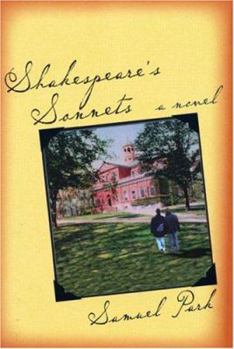Shakespeare's Sonnets
The year is 1948. Adam Greenhurst is a student at Harvard with dreams of becoming a literary scholar. He's from a rich and influential family and has become engaged to the perfect girl. His life plan... This description may be from another edition of this product.
Format:Hardcover
Language:English
ISBN:155583955X
ISBN13:9781555839550
Release Date:January 2006
Publisher:Alyson Books
Length:238 Pages
Weight:0.75 lbs.
Dimensions:0.8" x 4.2" x 8.7"
Customer Reviews
2 ratings
highly recommended
Published by Thriftbooks.com User , 16 years ago
This gay-themed novel has not gotten the attention it deserves. I was lucky enough to get a copy through my local library and I just loved it. Perhaps some potential readers are put off by the title and think the novel will be overly literary and tedious. Such is definately not the case. It is a wonderful romance - very well written, intelligent and insightful. It is not necessary to be familiar with Shakespeare's sonnets or to have previously read Oscar Wilde's short story "The Portrait of Mr. W.H." , but I do think it would help if readers at least are mildly interested in literature and history. But even if you're not, it's a good romance which takes place at Harvard in 1948 - at a time when being gay and "out" was not the norm. The book will also interest readers who enjoy gay fiction which takes place in a University setting. Other novels along this line (though each one different in place and time) are "Maurice," "The God in Flight," "Sebastian's Tangibles," and "Thomas Lyster" - all of which I definately recommend. And "Shakespeare's Sonnets" is also highly recommended - After reading a library copy I bought the book - it's a keeper.
Beautiful, if Flawed, Portrait of Love
Published by Thriftbooks.com User , 17 years ago
Jean Hayman and Adam Standridge are lovers of a rare stripe: they are actually willing to make sacrifices for each other. Samuel Park's novel, "Shakespeare's Sonnets," is the story of Jean and Adam, two students attending Harvard in 1948, who meet, fall in love, worry about the implications of that love, and then--surprise, surprise--make a commitment. I find this surprising because, with the possible exception of Forster's "Maurice," few novels from (or set in) the pre-Stonewall era, see any hope for gay relationships, which routinely end in tragedy. Take, for example, the novels being read by Jean--those early ones by Vidal and Capote--not to mention the life and works of Oscar Wilde, who plays a special role in the book. Neither "The City and the Pillar" nor "Other Voices, Other Rooms" (not mentioned in the book by name, but the only likely candidate) ends happily for its gay protagonists, while Oscar Wilde's life ended in exile and disgrace. There is a good deal of wisdom about relationships that informs Park's novel, and I look forward to seeing the short film by Park (collected in "Boys Briefs III") with Vincent Kartheiser (Connor on "Angel") in the role of Jean's counterpart, Sebastian. That being said, there are problems with the story. Both Jean and Adam want to be scholars, yet they are willing to bet their college careers on theses involving the identities of Shakespeare's Fair Youth and Dark Lady from the sonnets. To begin with, it's hard to believe that either boy would be thrown out of Harvard for reading a homosexual subtext into the sonnets (although there was resistance to such a notion, the New Critics, at least, had been dealing with the possibility since the 1930s), but Jean is so threatened in the book, after he follows Oscar Wilde's lead (the thesis was not original with Wilde) and identifies the Fair Youth as actor Willie Hughes, someone who has never been proved to exist. This leads to a ham-fisted encounter with a British art collector, Sarah Townsend, who may actually own a portrait of Hughes (there is an interesting subtext here that involves the discovery of an actual portrait, not of Hughes, but of the Earl of Southampton a few years back, that is attributed to Lady Sarah in Park's epilogue). While the plot device of the portrait is a distraction, so, on occasion, is Park's phrasing, which often verges on the non-idiomatic. These minor flaws aside, "Shakespeare's Sonnets" is an inspiring first novel that draws its power from the fragility of Jean and Adam's budding relationship, which grows in intensity until it matures into a full-blown romance, not unlike, appropriately, Shakespeare's "Romeo and Juliet." The moment, as captured by Park, is fraught with possibilities and looks forward to the post-Stonewall liberation movement of the 1970s.






